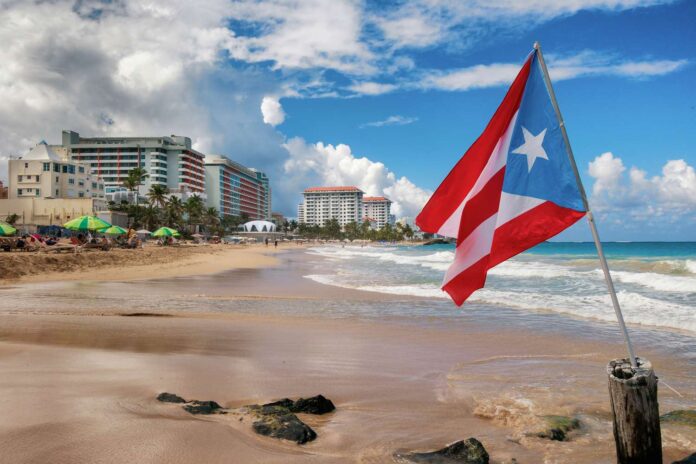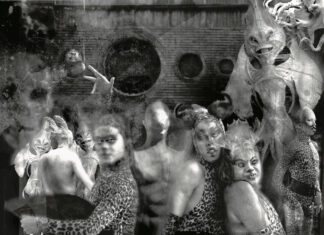The poor disaster relief response to Puerto Rico has rightfully attracted national attention. Still, the many explanations about the failures to alleviate the suffering fail to address the main reason: Puerto Rico is a colony.
This means the island, now classified as a commonwealth, is free to be financially and politically victimized by U.S. corporations, investment opportunists, and international banking institutions, such as the International Monetary Fund and World Bank.
While FEMA, the Coast Guard, and the military have responded to Hurricane Maria’s destruction, the aid is not reaching the island’s citizens because of legitimate logistical limitations: blocked roads and seaports, lack of land transportation, and no electricity and water.
For example, one of the main reasons for the slow arrival of relief supplies is the Jones Act. This Act protects the U.S.-based shipping industry at the expense of the island by diverting all shipping to a U.S. port. This artificially raises prices for imported goods in Puerto Rico but also acts as an impediment when it is time for immediate disaster release.
Citizens of Puerto Rico do not pay U.S. taxes, but as a territory, they have no voting members in Congress. When citizens of Puerto Rico have voted in numerous plebiscites to vote for statehood or sovereignty, the U.S. government injected the option that Puerto Rico remains a commonwealth purely for economic reasons, according to Yarimar Bonilla, associate professor of anthropology and Caribbean studies at Rutgers University and a visiting scholar at the Russell Sage Foundation.
In the worse case scenario, skeptics can say that one reason for the Administration’s poor relief response is that the island is largely Democratic and that it has no Congressional representation.
This explains why the island hosts the world’s largest concentration of Wal-Mart and Walgreens (on a per square foot basis) than anywhere else in the U.S. and why the most profitable Costco and Home Depot stores in their respective networks are in Puerto Rico than on the U.S. mainland, according to Bonilla.
As an American colony, the nation has been victimized for over a century since it became a U.S. territory in 1898. Since then, numerous plebiscites on the island have not resulted in a vote for residents to become U.S. citizens. 
In 1917, the Jones Act was passed to allow more Puerto Ricans to enter the military. Since the 1970s, Congress has kicked the can down the road to decide Puerto Rico’s statehood status, but a Republican Congress has not pushed this issue mainly because the island’s citizens would largely vote Democratic. In the worst-case scenario, skeptics can say that one reason for the Administration’s poor relief response is that the island is largely Democratic and that it has no Congressional representation.
Since the island has a poor population, small tax base, and a restrictive island economy, it is $72 billion in debt, has been in recession since 2006, and sought bankruptcy protection in May 2017, the first time in history an American state or territory had declared itself insolvent.
The island also has an unemployment rate of 12-13% compared to the U.S. rate of 5.5% and about a 41% poverty rate compared to the U.S.’s 14.3%, according to a 2015 article in The Guardian. The article also found that food on the island was 21% more expensive than in the U.S., accompanied by a cost of living that was 13% more expensive than in the U.S. Today, the island imports about 85% of its food, and the hurricane has decimated the island’s small domestic food production.
To worsen matters, the island’s government has also succumbed to a series of high-debt loan agreements that have piled more debt on an already weak economy.
Hurricane Maria and the 2008 recession paved the way for opportunists, such as hedge funds, bond issuers, private equity, and venture capitalists, to push for the privatization of Puerto Rico’s public assets (water, airport, roads) while also seeking to victimize the island by making unfavorable lending offers.

The latest example comes from bond issuers proposing an unfavorable bond swap deal to the island’s government. The hurricane was a natural disaster compounded by a man-made disaster of over a century of colonial neglect. It’s no wonder that many residents of Puerto Rico are now saying they will emigrate to the U.S. This will leave the island more vulnerable to financial opportunists as the population declines.
The Danger of Colonial Life
While Puerto Rico faces a slow recovery, and there is no timetable yet for when electrical power will be restored, some residents have already said they will leave the island for the U.S. Colonial life caused hardship, not only in Puerto Rico but also in the early days of the U.S.
In The Short History of American Capitalism, author Meyer Weinberg wrote that “on the eve of the American Revolution, 60% of the American people possessed no wealth.
“The top 20% controlled 95% of the wealth. Even the second fifth held only five percent of the wealth. Those without any assets were enslaved workers, indentured servants, or free women, in addition to poverty-stricken free workers located primarily in port towns. In one place after another, north or south, a similar distribution of wealth could be found.”
That wealth disparity continues today. It is only aggravated when man-made and natural disasters hit and people are deprived of any relief they would expect from their government. That is what is happening in Puerto Rico today and why the island will never be the same.











